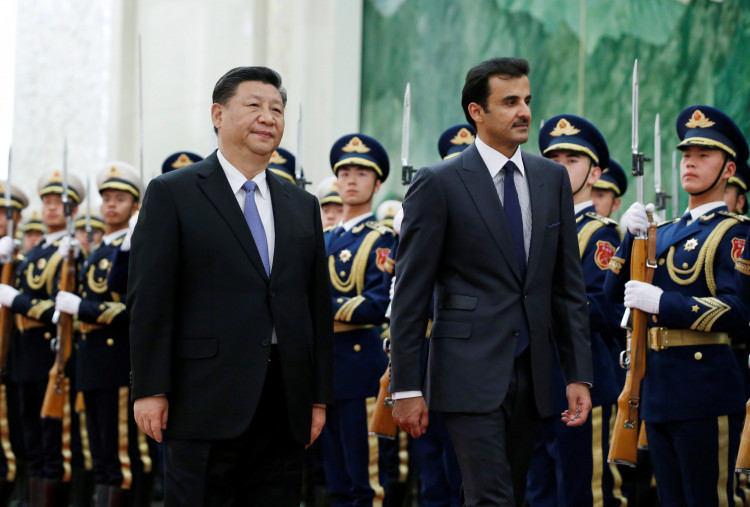The recent visit of Qatari Emir Sheikh Tamim Bin Hamad al-Thani sent off waves of optimism among local and international leaders who have been showing support for China-Qatar relations.
For many Chinese and Qatari officials, Emir Tamim's visit to China is a huge milestone in what could be one of the most successful collaborations in the history of global governments.
Political analyst Nabil al-Mrir told Xinhua, "The visit to China by Emir Tamim opened a new era of cooperation between the two countries with impressive results." He noted that the Chinese President Xi Jinping and Emir Tamim signed a couple of Memorandums of Understanding (MoUs). One of them is a strategic dialogue that the two countries will share.
In his statement, al-Mrir explained that the two leaders agreed to improve strategic collaborations in various aspects including investments, energy, political domains, security and technology, and others.
Another analyst, Hassan al-Ali, noted that the Qatari chief's visit marked an important day diplomatic ties with other countries following the blockade imposed on Qatar by other nations in the middle east.
Saudi Arabia, Egypt, Bahrain, and the United Arab Emirates blocked Qatar from engaging in any sort of business with them in mid-2017. The said countries accused Qatar of supporting several terrorist groups and since then, there have been doubts about the future of the middle-eastern country. Emir Tamim dismissed these claims.
Now that China has welcomed Qatar, analysts believe that faith in the country could be restored slowly. After all, the Chinese market is known for importing liquefied natural gas (LNG). Qatar, on the other hand, is one of the most dominant LNG producers in the world.
It is also expected that Doha will now have a more diversified approach to various industries instead of a major focus on gas and oil exports. Trade exchanges in other industry sectors are expected to improve.
For Hassan, China has great potential in production and management, thus the need for Qatar to strengthen technological and experiential ties with the Asian country.
As for Xi and China's delegation, it was reported that the Chinese president congratulated Qatar for advancing to the Asian Football Cup's finals. Xi also stressed that Beijing is willing to communicate further on strategies that will achieve the best results for both parties.
According to the Qatar Peninsula, Emir Tamim noted the significance of bilateral ties in his country's bid to show confidence in the Chinese economy despite reports of slowing growth and stunted developments.
Financial and political experts believe that China and Qatar will continue to communicate on diplomatic ventures, especially trade through the Silk Road. The sects in line with the Chinese-Qatari ties are tourism, sports, technology, finance, banking, education, and culture.





